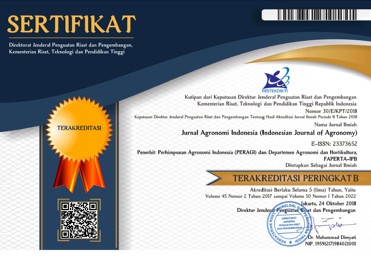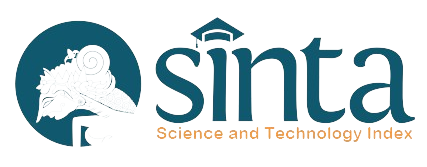Pola Kemajuan Seleksi pada Cabai Rawit Spesies Capsicum annuum L.
Abstract
Improvement of chilli’s quantitative traits requires several stages of breeding program, one of these is selection stage. The objective of this study was to obtain the information concerning the means and ranges of some quantitative characters, inbreeding depression, heritability estimates, and response to selection from six generations derived from crossing two parents of chili peppers. Materials used were IPB C160 (female), IPB C291 (male) as parents, F2, F3, F4, F5, and F6 derived from crossing of these parents with a total number of 630 plants. Results from this study showed that the mean values
between the generations F2 to F6 showed an increase in the observed character except of harvesting time. The highest value of inbreeding depression for harvest time, weight per fruit, and fruit length was found in F5 generation. The highest value of inbreeding depression for fruit weight per plant, number of fruit per plant, and fruit weight was found in F6 generation, and for fruit diameter was found in F4 generation. The narrow-sense heritability estimates were classified into low to moderate criteria. In general, declined responses to selection for quantitative characters in the six generations of chili were observed.
Keywords: advance selection, heritability, inbreeding depression, means value












